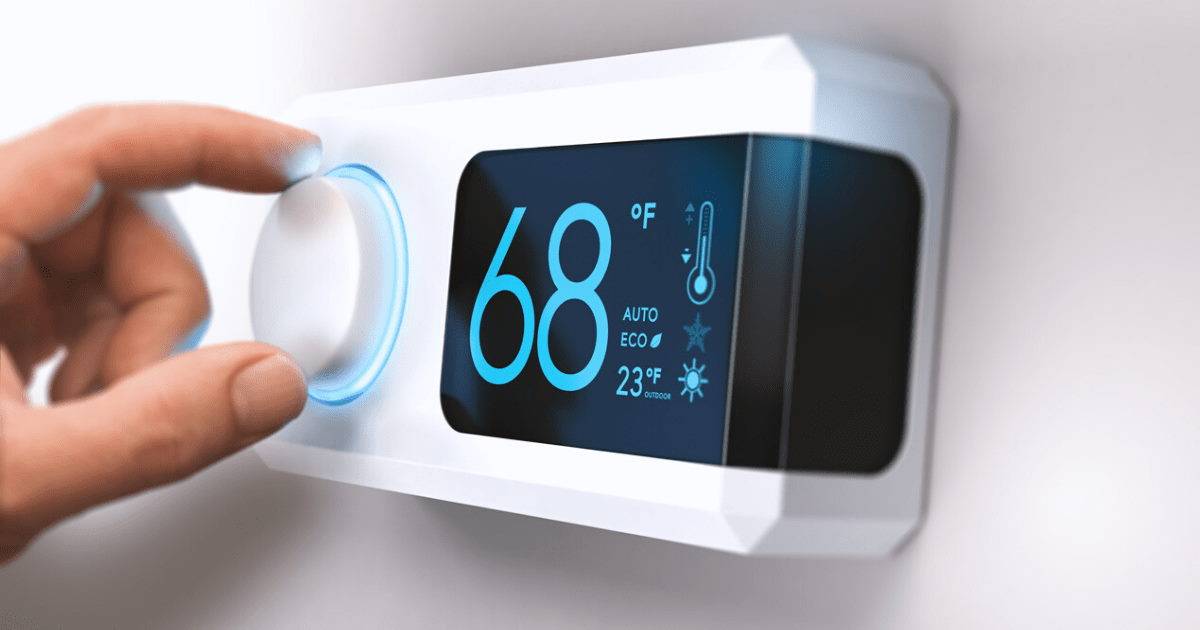Please provide your information and submit this form. Our team will be in touch with you shortly.
Whether you’re motivated by cost savings or have a desire to save the planet, every homeowner can benefit from learning new ways to make your home more energy-efficient. With rising energy costs and growing concerns about greenhouse gasses and the threat of climate change, many people are on the search for eco-friendly and budget-friendly ways to lighten the load.
The good news is, there are a number of options available that can make a difference immediately and over time. Taking the steps to make your home more energy-efficient can help lower your electricity bill while also lowering your impact on the environment.
Here are some helpful ways to make your home more energy-efficient:
Change Your Lightbulbs
As your parents always said, turn the lights off when you leave the room. This is a good habit to continue, but you’ll also want to replace incandescent light bulbs with compact fluorescent lamps (CFLs) or LEDs. The CFL or LED bulb may cost more but it will last many times longer and generate just as much light while saving three-quarters of the electricity used by your regular bulb and slashing your cost to one-third of what you’ve been paying.
Pull the Plugs
Many electronic devices, including televisions, computers, lamps, and microwaves may use energy even when they are on standby, earning them the nickname “energy vampires.” One way to identify a potential energy vampire is to check and see if it has a “brick” somewhere along the power cable – if it does, it’s probably consuming energy even when it’s not turned on. Rather than leaving those devices plugged in when they’re not in use, unplug them and you can save up to 10 percent on your bill. You can make it easy on yourself by plugging these devices into a power strip so you can turn off multiple devices at once.
Check the Thermostat
Climate control accounts for almost half of the utility bill costs in an average household. Start by adjusting the temperature to a setting that’s reasonably comfortable. This may take some getting used to if you are accustomed to icy summers and toasty winters at home, but it will be worth it to save on heating and cooling. The Department of Energy estimates that lowering your thermostat one degree extra in winter or raising it one degree extra in summer can save you as much as 3% on your heating and cooling bill.
Getting a smart programmable thermostat automatically adjusts the temperature based on when you are home, away, or asleep and lowers or raises the temperature accordingly, taking the guesswork out of household climate control and putting energy efficiency on autopilot. Data suggests that a smart thermostat can save you up to 12% on your heating costs and 15% on your cooling costs. And while a fancy new thermostat won’t be free, many power companies offer rebates to help offset some of the expense.
Upgrade Your Appliances
If you’ve been holding onto old appliances just because they still work, it may be time for an upgrade. Energy Star-rated refrigerators can run for as little as one-third the electricity and cost it takes your old fridge to run. And while you’re at it, avoid the temptation to stick the old one in the garage for more storage as this adds to your expense and energy usage. Newer dishwashers, microwaves, washing machines, dryers, and other appliances are usually more energy-efficient and Energy Star certified appliances can pay for themselves many times over when it comes to saving energy costs.
Stop the Leaks
Drafty doors and windows and inadequate insulation can be a real drain on your home’s energy efficiency. It may be time to upgrade to energy-efficient windows and doors or increase their efficiency with weatherstripping. Having sufficient insulation in your attic and walls can help your house stay cozy in the winter and cool in the summer while also lowering energy usage and costs.
Get an HVAC Tune-Up
To save money and ensure your furnace and A/C are running at peak efficiency, get an annual tune-up on your heating and cooling system. The HVAC technician will check that coils are clean, connections are properly tightened, and that parts are lubricated as needed.
If your HVAC system is old, it may pay to replace your furnace or air conditioning unit now rather than waiting for them to go out on you. An older furnace can waste a lot of natural gas, causing you to pay nearly 30 percent more on your heating bill. Most furnaces that are still in service now are more efficient than ancient systems, but a service technician will be able to help you determine the potential cost savings of an Energy Star unit.
Conclusion
If you are serious about making sure your home is as energy-efficient as possible, hire a professional energy auditor to inspect your home and evaluate your usage. In fact, many power companies will perform an energy audit of your home for free! They will recommend what you can do to cost-effectively improve energy efficiency and provide a plan to follow over time.
Every step you take to make your home more energy-efficient can make a difference. You don’t have to do everything at once, but each positive change you make matters.
The opinions voiced in this material are for general information only and are not intended to provide specific advice or recommendations for any individual.
This material was prepared by Crystal Marketing Solutions, LLC, and does not necessarily represent the views of the presenting party, nor their affiliates. This information has been derived from sources believed to be accurate and is intended merely for educational purposes, not as advice.


